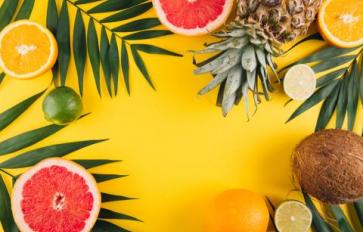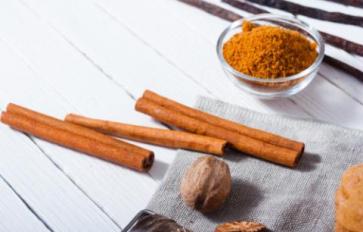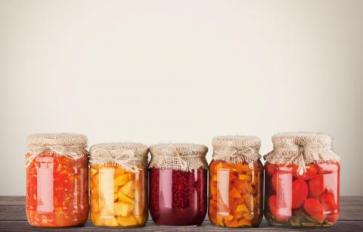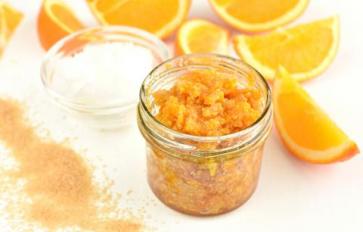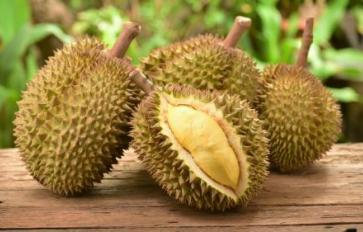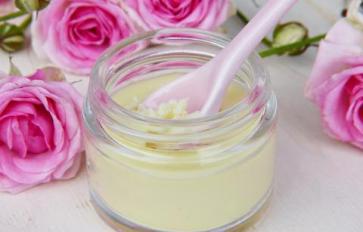
What do the following images have in common?

Photo Credit: Flickr

Stumped? How about this for an additional clue?

Corn syrup and its high fructose relatives.
Bear with me. I am certain the warmly beaming Aunt Jemima may bake a mean soufflé, and her hospitality would rank third in the world only behind my Ukrainian Jewish mother and grandmother. However, Jemima's “syrup” leaves much to be desired in the authenticity department. (Lest you sense a potential vendetta against Lady Jemima, many other brands share the same suspicious ingredient profile; I use her as a memorable example.) In addition, consider the other offending artificial ingredients comprising mystery syrup: strange coloring agents, frighteningly complex scientific terms of dubious origins and uses, artificial this and that...
Have you ever risen from a cold sweat the night before Halloween, reaching the traumatic epiphany that you forgot the fake blood for your otherwise masterful zombie outfit? True, you could procure pre-made potions but if you enjoy crafting your own, corn syrup helps greatly. I had thankfully never needed to purchase this product prior to a Halloween adventure. Curiously observing the unnaturally hefty bottle in my hand, I dreadfully realized its aesthetic similarity to congealed motor oil. People seriously used to cook with this as pervasively as olive oil? An older friend of mine mournfully confirmed first-hand, turned askance as if learning that his favorite elementary school teacher whom he treated as family is now serving time in prison for running a Ponzi scheme.
I now present this:


Why would you want to ingest the processed stuff, then, when you can have true natural syrup the way nature intended? Even if unfamiliar with what corn syrup and its high fructose brethren really are as ghastly over-processed thickeners or harmful substitute fillers, which set of ingredients would you be more likely to trust on a product: those with multiple enigmatic components – some of which command a degree in chemistry to decipher – or its natural counterparts stated very succinctly and singularly as “organic maple syrup”?
I understand the plight of price consideration. My parents emigrated to the States with very few possessions and even less knowledge of the English language, other than maybe some ABBA lyrics. Therefore, we budgeted early on due to the limited income, so I had been introduced to “imposter syrup” as a tot.
Fast forward a few decades. After a visit to a major mainstream supermarket chain – considering prices may vary between stores and brands – the Simple Truth organically divine fluid shown in the photo above was $5.99 for 8oz versus $3.99 for 24oz of Jemima which you may notice contains both corn syrup and high fructose corn syrup as well as other... “stuff.” Review the ingredients labels. Moving on to the nutrition label, the Simple Truth in this example states plainly that it features more sugar – 53g versus Jemima's 32g for the same 60ml serving size – which can be rather misleading if you neglect the big picture. Just the label facts, ma'am? No. Remember that Simple Truth's is naturally occurring sugar compound contained within the maple sap versus its over-processed opposition, so you may ultimately appease your sweet tooth earlier – and much more healthily so – thereby potentially using less product than originally thought, and thusly lasting longer instead of acknowledging the product amounts at face value. Organic maple syrup is innately rich and beautiful. Quality often renders quantity irrelevant. Likewise, I'd personally prefer a single excellent Belgian beer over an entire case of equally priced Coors Light.
If authenticity and wholesome foods are worth the extra dough to you, consider how your body processes “syrup” (with quotation marks) versus natural syrup (no quotation marks). In concert with their respective health benefits, I know foods derived as directly from nature as possible simply taste far better to me, connect me closer to our wonderful Earth, and sit more favorably in my digestive system – versus their fabricated substitutes which aggravate over time, if not immediately. If it feels better, then it is better -- perhaps because it resonates with you as a creature born of this divine celestial body whose available gifts are meant to be enjoyed as unadulterated as we can for our own well-being.
Peace, love, and space to you all... and honest maple syrup!

